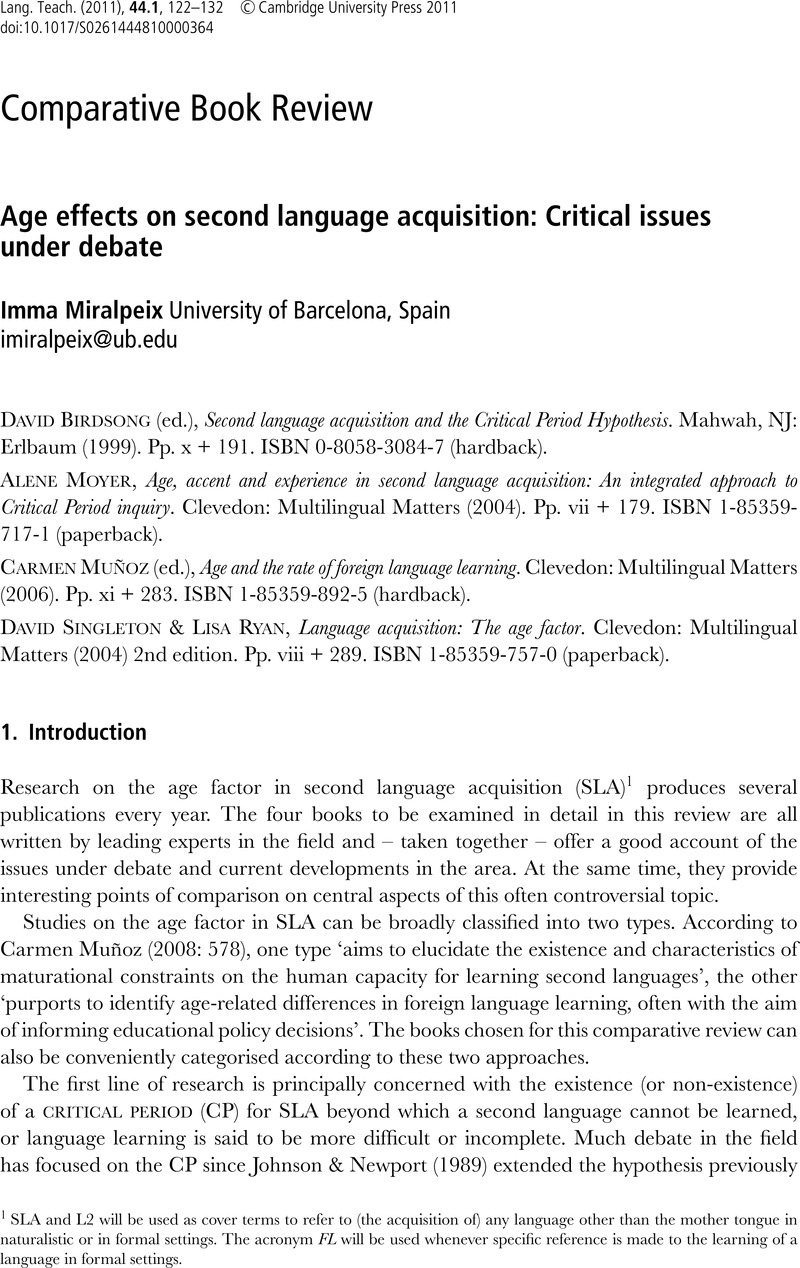Crossref Citations
This article has been cited by the following publications. This list is generated based on data provided by Crossref.
Ocak, Gürbüz
Boyraz, Serkan
and
Kizilkaya, Hasan
2013.
COMPARING 1997 AND 2005 ENGLISH CURRICULA APPLIED IN 4th AND 5th GRADES IN TURKEY.
Problems of Education in the 21st Century,
Vol. 56,
Issue. 1,
p.
93.
Nie, Dongxia
and
Mavrou, Irini
2025.
Parents' views on Chinese young learners' foreign language learning attitudes and motivation: A mixed methods study.
Language Teaching,
p.
1.



